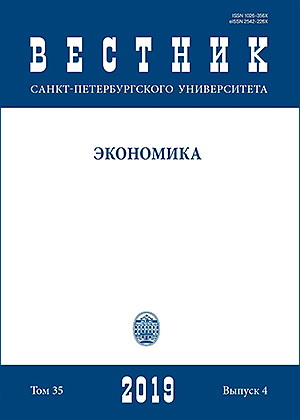Влияние корпоративного управления на дивидендные выплаты на разных стадиях жизненного цикла корпорации
DOI:
https://doi.org/10.21638/spbu05.2019.404Аннотация
В статье рассматривается взаимосвязь дивидендной политики и качества корпоративного управления. С одной стороны, решения о политике выплат могут рассматриваться как механизмы урегулирования агентского конфликта или субституты лучших практик корпоративного управления, а с другой стороны, само качество корпоративного управления является определяющим фактором решений о дивидендах в корпорации. В эмпирической литературе есть подтверждения обоих направлений взаимосвязи показателей. В данной работе сделана попытка объяснить полученные ранее противоречивые эмпирические результаты при помощи теории жизненного цикла корпорации. Направление взаимосвязи дивидендных выплат и качество корпоративного управления на разных стадиях жизненного цикла может изменяться. Для индекса корпоративного управления показано, что модель субститутов может объяснять использование политики выплат на ранних стадиях жизненного цикла, когда стоимость выстраивания качественного корпоративного управления намного превышает возможные потери от дивидендных выплат. Теория результата может объяснять политику выплат на поздних стадиях жизненного цикла для зрелых, стабильных компаний, у которых есть значительные ресурсы для решения агентских конфликтов.
Ключевые слова:
агентский конфликт, корпоративное управление, политика выплат, теория жизненного цикла, панельные данные, Тобит-модель
Скачивания
Библиографические ссылки
References in Latin Alphabet
Загрузки
Опубликован
Как цитировать
Выпуск
Раздел
Лицензия
Статьи журнала «Вестник Санкт-Петербургского университета. Экономика» находятся в открытом доступе и распространяются в соответствии с условиями Лицензионного Договора с Санкт-Петербургским государственным университетом, который бесплатно предоставляет авторам неограниченное распространение и самостоятельное архивирование.







